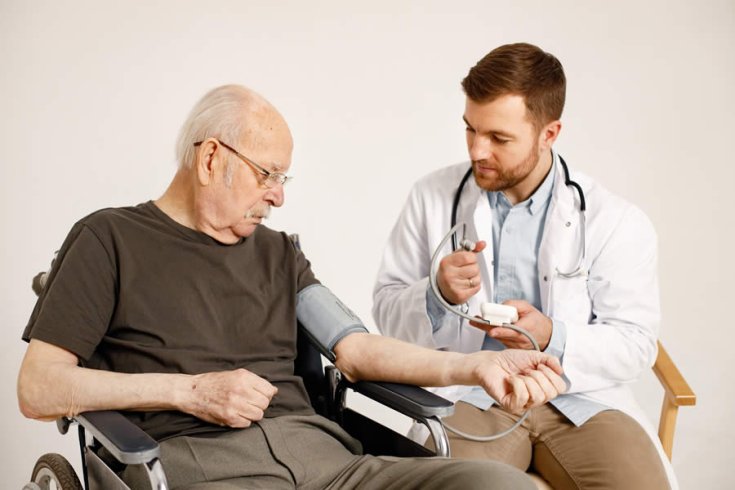Living with arrhythmias can make daily life very unpredictable. One moment you can feel fine, and the next your heart starts racing or skipping beats. Symptoms can impact your health, energy, and sense of control. Cardiac ablation is a treatment option that can help to restore a normal rhythm, but many patients wonder what the procedure involves and if it’s the right step. Capitol Cardiology Associates is here to give you a clear, honest look at the potential risks and benefits before making any decision about your heart. If you're working with a heart doctor or cardiologist to explore your options, keep reading.
Understanding What Cardiac Ablation Is
Cardiac ablation is a minimally invasive procedure that helps correct abnormal heart rhythms, also known as arrhythmias. It works by targeting small areas of heart tissue that send out irregular electrical signals. These problem areas are either burned through radiofrequency ablation or frozen by cryoablation to disrupt the erratic impulses and allow your heart’s natural rhythm to return. The process begins with thin catheters that are inserted through a blood vessel and guided into the heart. The procedure is used to treat conditions like atrial fibrillation, atrial flutter, supraventricular tachycardia, and certain types of ventricular tachycardia. Ablation is a great alternative for patients whose symptoms don’t respond well to medication or who have side effects. A heart doctor or cardiologist might recommend it after evaluating your diagnosis, symptoms, and health history.
The Benefits Patients May Experience
After cardiac ablation, many patients experience fewer arrhythmia episodes and sometimes complete resolution of their abnormal rhythm. They get better sleep, have more energy during the day, and have fewer interruptions to their routine. While it doesn’t guarantee a cure, it can dramatically reduce the need for long-term drug therapy. Some people are even able to stop taking certain heart rhythm medications after successful treatment, under a doctor’s guidance. Cardiac ablation can also lower the risk of complications from chronic arrhythmias, such as stroke or heart failure. For example, in cases of atrial fibrillation, reducing the frequency of irregular rhythms can improve how efficiently the heart pumps blood. Better rhythm control can lead to better overall heart function. The recovery time is generally short. Most patients go home the same day or the following morning. They can return to regular activities within a few days, depending on how they feel. Your heart doctor or cardiologist in Lanham, MD will offer clear instructions based on your specific case.
Possible Risks and Complications
Cardiac ablation is safe and widely used, but you need to understand the possible complications before moving forward. Some common short-term risks include bleeding or bruising at the catheter insertion site, usually in the groin. In very rare cases, more serious issues can occur, such as damage to blood vessels, blood clots, or injury to the heart’s electrical system that might require a pacemaker. There is also a small risk of developing fluid around the heart or lungs in complex ablation cases. Infections are uncommon but can happen. When using heat-based energy, there is a very slight risk of esophageal injury due to the heart’s proximity to the esophagus. This is more closely monitored now with advanced imaging and temperature sensors. The skill and experience of the electrophysiology team play a major role in minimizing these risks. Your care team will thoroughly review your health status and help you weigh the likelihood of complications. Complications are uncommon, but they’re worth discussing. An experienced cardiologist will be upfront with you, explain the odds, and walk you through every step so that you know what to expect.
Who Might Be a Good Candidate
Cardiac ablation isn’t the right fit for everyone, but it can be a smart option for many people struggling with recurrent arrhythmias. You might be a candidate if medications haven’t controlled your symptoms, or if you can’t tolerate their side effects. People with frequent hospital visits due to fast or irregular heartbeats may also be considered. It’s especially relevant for patients with paroxysmal atrial fibrillation, as success rates tend to be higher when the rhythm problem is caught earlier in its course. Younger patients and those with structurally normal hearts tend to respond better to ablation as well, but older adults often see great results, too. Even if your arrhythmia doesn’t occur every day, you can still qualify for treatment. Some patients experience unpredictable flares that interfere with work, sleep, or exercise. If your arrhythmia is affecting your life and you want an option beyond pills, talk with your heart doctor. A detailed evaluation, including EKG, Holter monitor, or cardiac imaging, may be needed to confirm the diagnosis. Your cardiologist can help determine whether the expected benefits outweigh the risks in your case. If you’re otherwise healthy and your arrhythmia is persistent or disruptive, ablation may offer a path to better stability and fewer symptoms.
What Recovery and Follow-Up Involve
After cardiac ablation, patients typically rest for several hours before going home. You may feel tired for a day or two, and mild soreness at the catheter site is normal. Most people resume light activity within 48 hours and gradually return to normal routines over the next week. It’s common to experience a few irregular heartbeats in the weeks following the procedure. These are usually part of the healing process. The heart needs time to recover and form scar tissue where the ablation occurred. Your doctor may monitor your rhythm with a patch or wearable device and continue medications for a short time during this adjustment period. Follow-up with your cardiologist is needed to help track your progress and identify any signs of recurrence early. Some patients may need a repeat ablation at some point in the future, particularly for complex rhythm disorders. However, many people see long-term improvement after a single session. The success rate for ablation depends on the type of arrhythmia and your overall heart health. Your doctor will give you realistic expectations and help prepare you for the recovery timeline.
Talk to a Specialist Today
Cardiac ablation can be a powerful tool for restoring rhythm and improving quality of life. If your arrhythmia is getting in the way of how you live, feel, or function, it may be time to speak with a heart doctor in Largo, MD who understands these issues in depth. The team at Capitol Cardiology Associates can help. Each cardiologist on our staff is committed to helping patients explore their options with clarity and confidence. We take the time to explain your choices and support you through each step of the decision-making process. If you’re ready to learn whether cardiac ablation is right for you, contact us today to schedule a consultation.






